PREVIEW
Guests heard on Volume 126
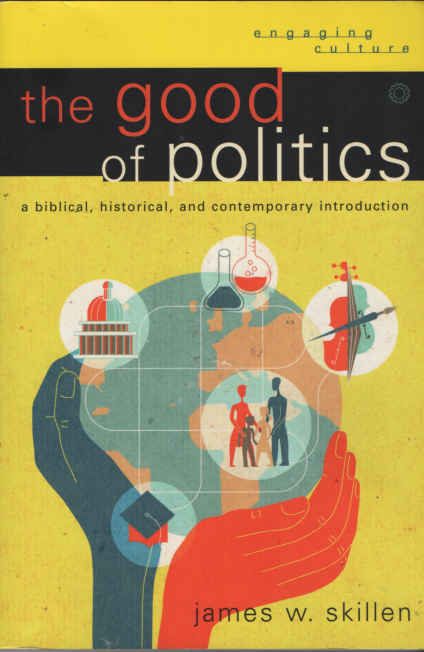
James W. Skillen, author of The Good of Politics: A Biblical, Historical, and Contemporary Introduction, on how all human cultural activity, including politics, should be understood in the context of God’s good purposes for Creation
read more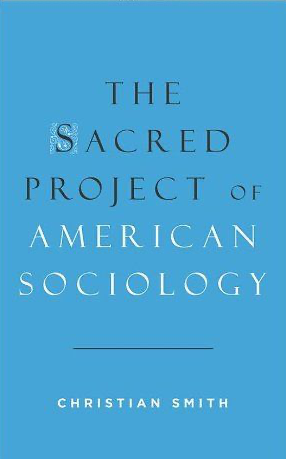
Christian Smith, author of The Sacred Project of American Sociology, on how American sociology is not (as is claimed) a disinterested scientific endeavor but the pursuit of a sacred project driven by sacred commitments
read more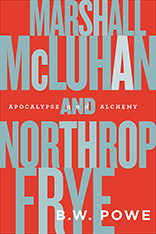
B. W. Powe, author of Marshal McLuhan and Northrop Frye: Apocalypse and Alchemy, on the unique “apocalyptic” insights of Marshall McLuhan and Northrop Frye
read more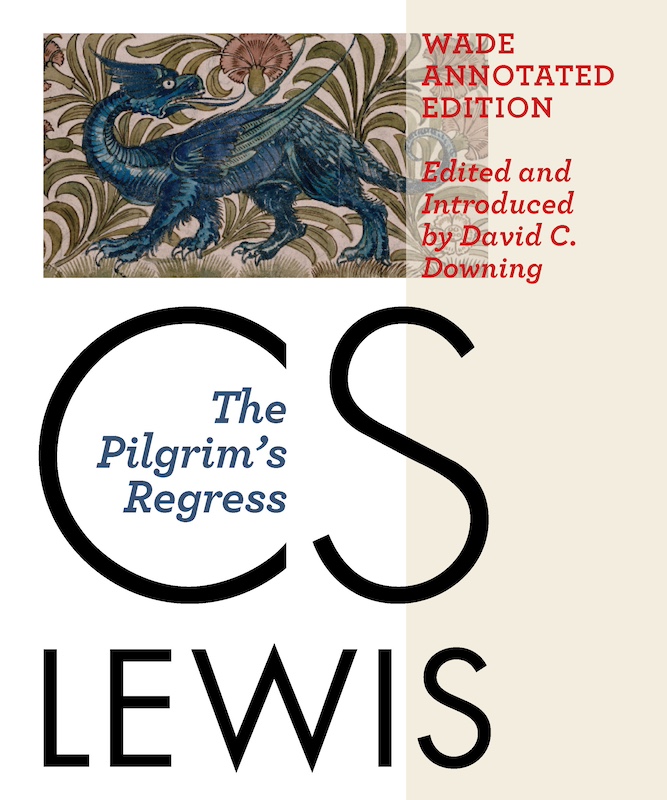
David Downing, editor of the Wade Annotated Edition of C. S. Lewis’s The Pilgrim’s Regress, on the book’s allegorical references to twentieth-century cultural and intellectual movements
read more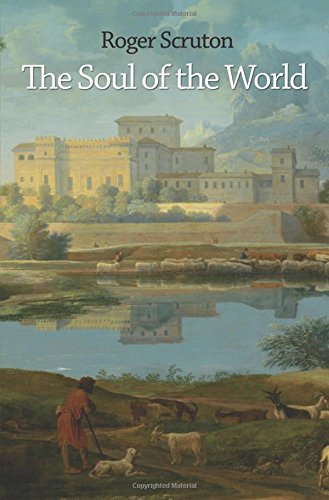
Roger Scruton, author of The Soul of the World, on the inability of materialism to give a satisfactory account of our experience of the material world (this track also available as an Archive Feature)
read more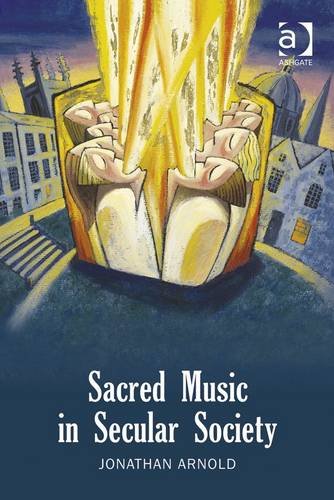
Jonathan Arnold, author of Sacred Music in Secular Society, on the curious place of sacred music in a secular society
read moreRelated reading and listening
- Music that conveys spiritual truths —
FROM VOL. 137 Musicologist Michael Marissen discusses the masterful way in which J. S. Bach uses musical idiom and quotation by way of theological counterpoint to the texts of his sacred vocal works. (13 minutes) - Harbinger of disorder — Mark Mitchell on Michael Polanyi’s recognition of the dangerous dead-end of materialistic reductionism
- Economics and personhood —
FROM VOL. 147 Mary Hirschfeld argues that modern economics makes some fundamental assumptions about personhood, material goods, and God that prevent the development of a truly human understanding of economic life. (20 minutes) - How advertising detaches us from the world —
FROM VOL. 13 Historian and cultural critic Jackson Lears discusses the power of advertising to reinforce and shape cultural attitudes about material goods. (9 minutes) - Gifts for a baby King — Ken Myers introduces listeners to various musical compositions created for Epiphany (January 6), the Church’s feast day celebrating the revelation of Christ to the world. (25 minutes)
- Seven Messianic titles, seven attributes of Christ — Ken Myers introduces listeners to four composers who each have set all seven of the O Antiphons to music. (17 minutes)
- “Prophet of holiness” — Timothy Larsen discusses a new edition of George MacDonald‘s Diary of An Old Soul, a slim book of poem-prayers to be read daily as a devotional aid. (30 minutes)
- Aslan, the Christ-figure of Narnia — Alex Markos explores the transformational power of Aslan as the Christ figure in C. S. Lewis’s Chronicles of Narnia. (31 minutes)
- The Bully Pulpit: Presidential Rhetoric and True Leadership — Elvin Lim talks about the decline of the content of presidential rhetoric and its consequences to democracy. (49 minutes)
- Mars Hill Audio Journal, Volume 162 — FEATURED GUESTS: Mark Noll, R. Jared Staudt, Paul Weston, William C. Hackett, Hans Boersma, and David Paul Baird
- Early evangelical response to C. S. Lewis — Historian Mark Noll discusses the reasons why American evangelicals were initially slow to warm to Lewis. (15 minutes)
- “A state of divine carelessness” —
FROM VOL. 121 Daniel Gabelman attempts to correct the notion that George MacDonald prizes seriousness and sobriety. (20 minutes) - Prudence in politics —
FROM VOL. 146 Henry T. Edmondson, III talks about Flannery O’Connor’s understanding of political life, which was influenced by a range of thinkers including Aristotle, Thomas Aquinas, Eric Voegelin, and Russell Kirk. (19 minutes) - The formative power of hymns and hymnbooks —
FROM VOL. 149 Christopher Phillips discusses the cultural and spiritual effects of hymns and the “thingness” of hymnals. (18 minutes) - Congregational singing in Martin Luther’s time —
FROM VOL. 137 Liturgical scholar Robin Leaver clarifies some misconceptions about Martin Luther’s commitment to congregational singing. (10 minutes) - Early 19th-century hymnody —
FROM VOL. 151 Musicologist Peter Mercer-Taylor tells the story of how early 19th-century hymnody introduced many Americans to a repertoire of classical music. (27 minutes) - Ideas and historical consequences — Historian John Lukacs (1924–2019) discusses the relationship between institutions and character, popular sentiment versus public opinion, the distinction between patriotism and nationalism, and the very nature of studying history. (36 minutes)
- “Reading Lewis with blinders on” — Chris Armstrong explains how C. S. Lewis’s work is grounded deeply in the Christian humanist tradition. (45 minutes)
- On The Abolition of Man —
FROM VOL. 154 Michael Ward explains why The Abolition of Man is one of Lewis’s most important but also most difficult books. (36 minutes) - Seeking control, in white magic and The Green Book — Alan Jacobs on C. S. Lewis’s critique of the modern pursuit of god-like control
- Education, reason, and the Good — Justin Buckley Dyer and Micah J. Watson on C. S. Lewis’s argument about natural law
- Orienting reason and passions — In an essay titled “The Abolition of Mania” (Modern Age, Spring 2022), Michael Ward applies C. S. Lewis’s insights to the polarization that afflicts modern societies. (16 minutes)
- Fixed certainties, fixed mysteries —
FROM VOL. 42 Science journalist John Horgan, author of The Undiscovered Mind: How the Human Brain Defies Replication, Medication, and Explanation, discusses the limits of neuroscience. (13 minutes) - Materialism and the problem of mind — David Bentley Hart on the evasiveness implicit on all efforts to explain away human consciousness
- Skillen, James William — FROM THE GUEST PAGE: After teaching political science and philosophy at three Christian colleges, Dr. James W. Skillen became the director and then president of the Center for Public Justice in Washington, D.C. from 1981 until his retirement in 2009.
- In tune with the muses of Zion — Ken Myers on the Christmas music of Michael Praetorius
- In dulci jubilo — Ken Myers introduces some of the music for the season composed by Michael Praetorius (1571–1621), best known for his settings of Es ist ein Ros entsprungen (“Lo how a rose e’er blooming”) and In dulci jubilo. (18 minutes)
- Freedom from the nature of things? — Leon Kass on the pressure exerted by the authority of science to embrace reductionistic materialism
- An unlikely trio in life (and in death) —
FROM VOL. 1 Philosopher Peter Kreeft was interviewed in 1982 by Ken Myers about his book, Between Heaven and Hell. In 1992, that interview was featured on the pilot cassette tape which became the Mars Hill Tapes. (10 minutes) - Music, passion, and politics — In this interview from 2001, Carson Holloway discusses his book All Shook Up: Music, Passion, and Politics, which summarizes the dramatic chasm between the classical and modern views of political ends and of musical means. (45 minutes)
- The mysteries and glory of Christmas and its music — Ken Myers presents examples of music from five centuries that capture some sense of the astonishing fact of the Nativity of our Lord. (15 minutes)
- The music and the notes are precious — Ken Myers encourages an understanding of the Church as a particular culture that should be nourished and sustained, and then describes the history of an Advent hymn written by St. Ambrose. (27 minutes)
- Mars Hill Audio Journal, Volume 155 — FEATURED GUESTS: Donald Kraybill, Thaddeus Kozinski, David Bentley Hart, Nigel Biggar, Ravi Scott Jain, and Jason Baxter
- The Narnian as Jeremiah — Michael Ward on the bleak prognosis in C. S. Lewis’s The Abolition of Man
- Mars Hill Audio Journal, Volume 154 — FEATURED GUESTS: Felicia Wu Song, Michael Ward, Norman Wirzba, Carl Trueman, D. C. Schindler, and Kerry McCarthy
- Stabat Mater dolorosa — Ken Myers offers some thoughts on the aesthetics of sympathy, and introduces some of the musical settings of the remarkable medieval poem known as “Stabat Mater dolorosa.” (23 minutes)
- Passions before Bach — In preparation for Holy Week, Ken Myers presents a whirlwind music history lesson with musical examples from the sixteenth, seventeenth, and eighteenth centuries. (22 minutes)
- MYST and mythic guests — Game designers Rand and Robyn Miller explain how their game’s creation was influenced by their love for the fantasy of J. R. R. Tolkien and C. S. Lewis. (13 minutes)
- The mysteries and glory of Christmas and its music — Ken Myers presents examples of music from five centuries that captures some sense of the astonishing fact of the Nativity of our Lord. (26 minutes)
- Beckoning to wisdom — Poet Malcolm Guite and composer J.A.C. Redford talk about their collaboration on a song cycle inspired by the O Antiphons of Advent. (22 minutes)
- The tasks, conditions, and limits of democratic politics — Excerpts from three interviews with Jean Bethke Elshtain about her concern that democracy might not be able to survive widespread distrust or the dynamics of identity politics. (37 minutes)
- Pragmatism, Politics, and the Spirit of Tragedy — John Patrick Diggins discusses themes in two of his books: The Promise of Pragmatism: Modernism and the Crisis of Knowledge and Authority (1994) and Max Weber: Politics and the Spirit of Tragedy (1996). (27 minutes)
- Sneaking past watchful dragons — Junius Johnson describes how Hans Urs von Balthasar’s understanding of Creation resonates with that of C. S. Lewis and Bonaventure, all three of whom served as mentors in his thinking about beauty. (18 minutes)
- Renaissance music for Good Friday — In a special Feature for Good Friday, Ken Myers shares settings of passages from the Book of Lamentations and of the Tenebrae Responsories by Tomás Luis de Victoria. (18 minutes)
- Meditative music for Passiontide — At the start of Passiontide, Ken Myers introduces listeners to works by the Renaissance composer Orlande de Lassus which highlight the theme of lamentation. (18 minutes)
- The role of hymns in building faith — Darryl Tippens reminds us of Scriptural texts in which a person is moving closer to God when music breaks out (such as Mary’s Magnificat, and he discusses the history of music in the church. (23 minutes)
- Becoming a serious and receptive reader — David Lyle Jeffrey offers a thoughtful reading of C. S. Lewis’s account of thoughtful reading
- The Incarnation presented in music — Composer J.A.C. Redford talks about the theme of the Incarnation as musically presented in his choral symphony for Christmas entitled “Welcome All Wonders.” (23 minutes)
- Walter Hooper, R.I.P., and Christina Rossetti’s Advent poems — Walter Hooper (1931-2020) describes his first meeting with C. S. Lewis, a man he so admired and long served. In a second chapter in today’s Feature, Emma Mason explains how Christina Rossetti’s hopeful eschatological beliefs influenced the poems she wrote about the season of Advent. (21 minutes)
- Erotic love (allegedly) conquers all — C. S. Lewis on why the “right to sexual happiness” makes totalitarian demands